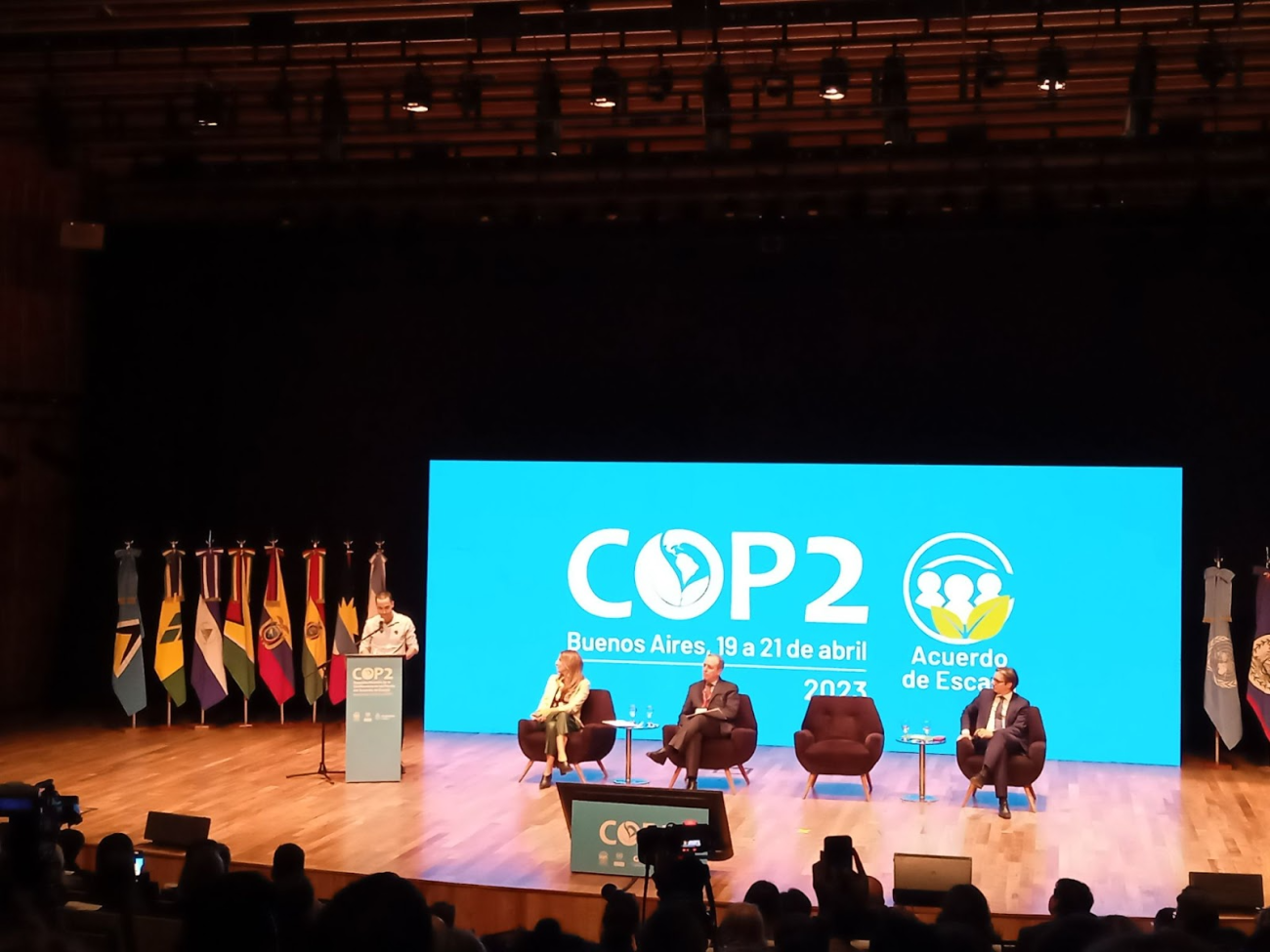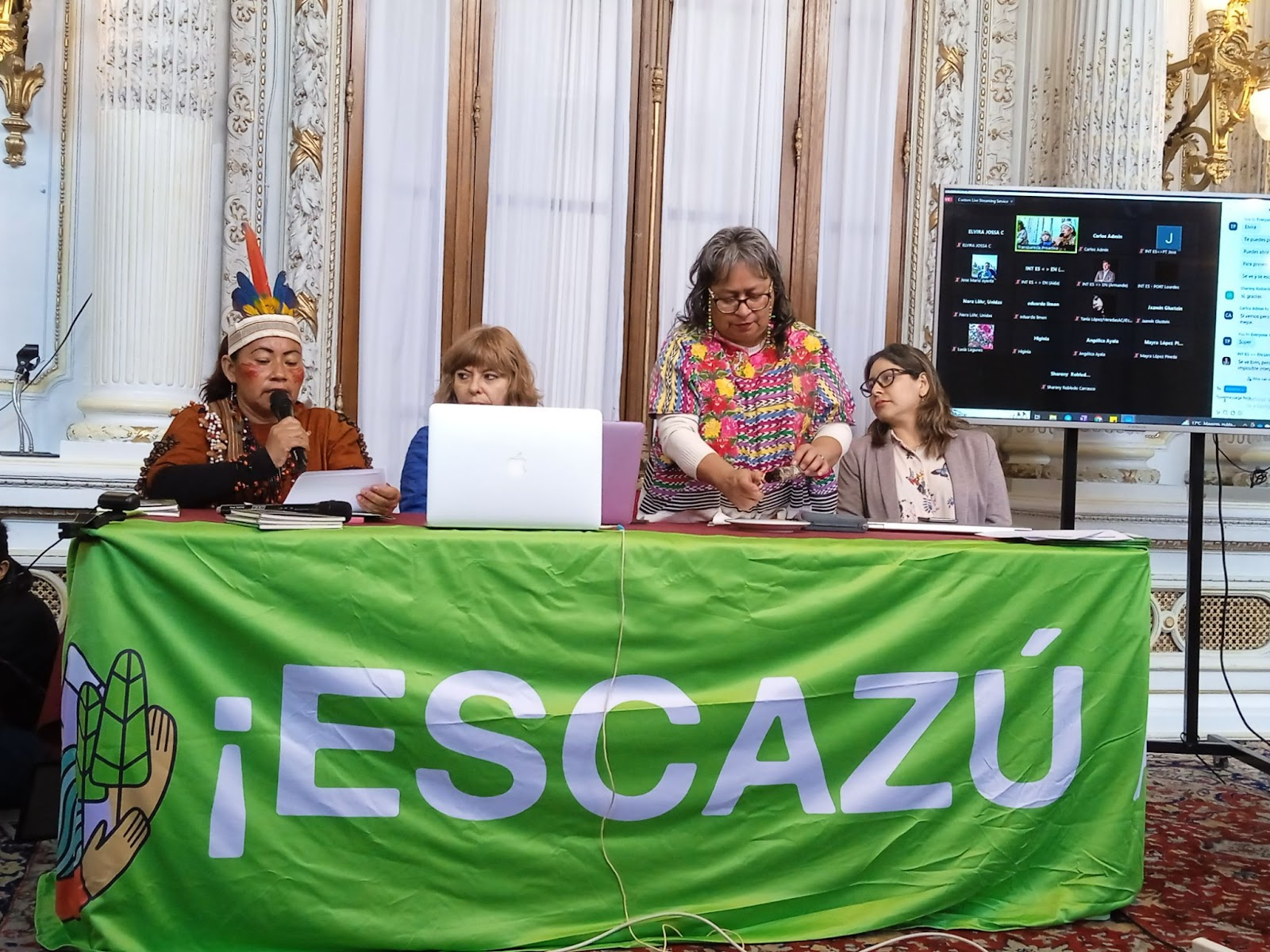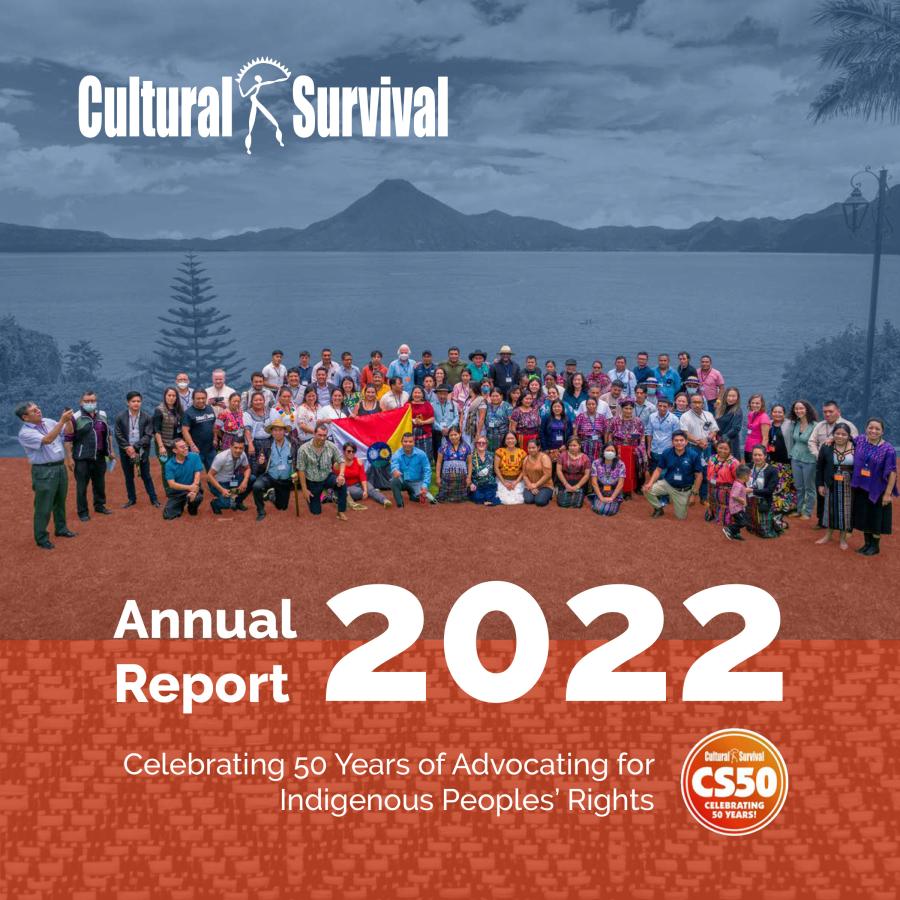
The second Conference of the Parties to the Escazú Agreement took place in Buenos Aires, Argentina on April 19-21, 2023. The Regional Agreement on Access to Information, Public Participation, and Justice in Environmental Matters in Latin America and the Caribbean, better known as the Escazú Agreement, is the first regional environmental treaty that is binding. According to official data, 350 civil society participants and 23 country delegations, in addition to the elected representatives of the public–civil society representatives–, the Presiding Officers of the Agreement, and others attended the event.
This Conference of the Parties (COP2) had several objectives, among them the election of the seven people who comprise the Committee to Support Implementation and Compliance and following up on decision I/6 (taken during COP1) on human rights defenders in environmental matters. Regarding the first objective, people from Argentina, Chile, Uruguay, Grenada, Costa Rica, Jamaica, and Panama were elected to the Committee. They are independent experts who will support the implementation of the provisions of the Escazú Agreement.
Regarding the second objective, follow up decisions on the first Annual Forum on Environmental Human Rights Defenders in Latin America and the Caribbean, which took place in Quito, Ecuador, in November 2022 were announced.
The Escazu Agreement is the first binding treaty to include provisions on environmental defenders. The basis for these protections is the implementation of Article 9 of the agreement. The three main obligations established in this article are: 1) to guarantee a safe environment that enables the defense of human rights in environmental matters, 2) to take adequate and effective measures to recognize, protect and promote all the rights of defenders and 3) to prevent, investigate, and punish attacks on, threats against or intimidation of human rights defenders in environmental matters. Regarding this last obligation, during the COP2 sessions, some voices from civil society complained that murders are not included in this provision, given the frequency with which these occur in the region.
During the Quito forum, the open-ended ad hoc working group led by Chile, St. Kitts and Nevis, and Ecuador, which was established during the first COP with the objective of developing an Action Plan on Human Rights Defenders in Environmental Matters in Latin America and the Caribbean, continued its work. Throughout 10 months of work, in person and online, 140 people participated. There were 10 working groups: three on a safe and enabling environment, three on protection mechanisms, three on response mechanisms and access to justice, and one on monitoring and cooperation. This resulted in more than 200 recommendations that were included in the Forum Report.
As a result of this process, during the COP2 session on April 21, 2023, the draft annotated index of the Action Plan on Human Rights Defenders on Environmental Matters was presented. This draft will be open for public consultation until June 21, 2023. Although COP1 Decision 1.6 stated that the working group on environmental defenders should involve Indigenous Peoples and local communities, many civil society organizations pointed out that this period for consultation is extremely short for Indigenous Peoples in all countries party to the agreement, especially considering that the consultation can only be submitted online, which makes it inaccessible for the many communities for whom internet access is limited.
Indigenous and Civil Society Representatives During a Side Event at COP2
The next Annual Forum on Environmental Human Rights Defenders in Latin America and the Caribbean will take place in September 2023 in Panama. Work on this process will continue and a final draft of the Action Plan will be presented for approval at COP3, which will take place in Chile in April 2024.
Some of the primary demands from Indigenous Peoples during this COP2 were:
- That the Working Group on human rights defenders on environmental issues is intercultural and that there is Indigenous representation.
- That consultations on the draft Action Plan on human rights defenders on environmental issues should offer alternatives to online submission, as many communities do not have good internet access.
- If necessary, to extend the two-month window for consultation on the draft to allow for in-person consultations with Indigenous Peoples.
- To ensure that the public consultation on the draft Action Plan on human rights defenders is translated into Indigenous languages.
- To include Indigenous Peoples' self-protection mechanisms (Indigenous guards, etc.) in the Action Plan on human rights defenders in order to protect, recognize and support them.
- Urge States to include Indigenous persons in their delegations to the Conferences of the Parties and the annual forums on environmental defenders.
In addition to these demands, Indigenous Peoples who attended the event addressed other issues of great relevance. Bringing together just a single Indigenous demand is not always possible, as national legislation and contexts vary significantly. An example of this would be public hearings, spaces aimed at the raising awareness of development projects, and where Environmental Impact Studies are presented. Indigenous Peoples from different countries had different perspectives on the meanings of public hearings, based on their own local contexts and experiences with such spaces. However, even across different country contexts, a common demand was to respect both the provisions of Escazú and the Free, Prior and Informed Consent to which Indigenous Peoples are entitled under international law.
Indigenous Peoples are on the frontlines of land and environmental defense but they are often relegated to the sidelines when it comes to participating in decision-making. One of the calls of the first annual forum in Quito was to strengthen the participation of Indigenous Peoples and Afro-descendants in the mechanisms of the Escazú Agreement. It is imperative that this demand is implemented in every event, be it the Conference of the Parties or the Annual Forum on Environmental Defenders, and that the effective participation of Indigenous representatives is ensured in every sphere.
During this Conference of the Parties, concerns were raised about the participation of civil society, as many people representing the general public and non-governmental organizations were not allowed to participate in the official sessions. Future Escazú COPs must permit and prioritize the presence of these groups, as public participation represents the backbone of the agreement.
Beyond the decisions taken at this Conference of the Parties, all the countries in the region must commit to collaborate with the Voluntary Fund–established in Article 14 of the Agreement–in order to fund the work of the Committee to Support Implementation and Compliance and the Working Group on Environmental Defenders and to achieve other objectives mentioned in the agreement.
As was mentioned several times during the COP2, the Escazú Agreement is not a ceiling–a maximum aspirational goal. Rather, it is a floor–a minimum standard–on which to continue building in terms of human rights and the protection of environmental defenders.
Top photo: Mijael Kaufman, elected representative of the public, giving a speech during the opening ceremony of COP2 Escazú.



